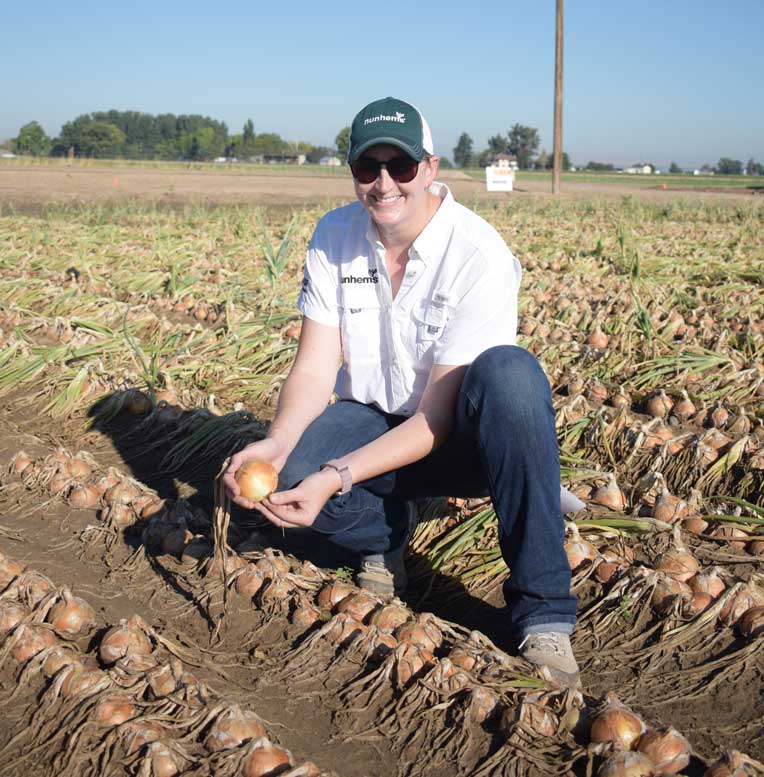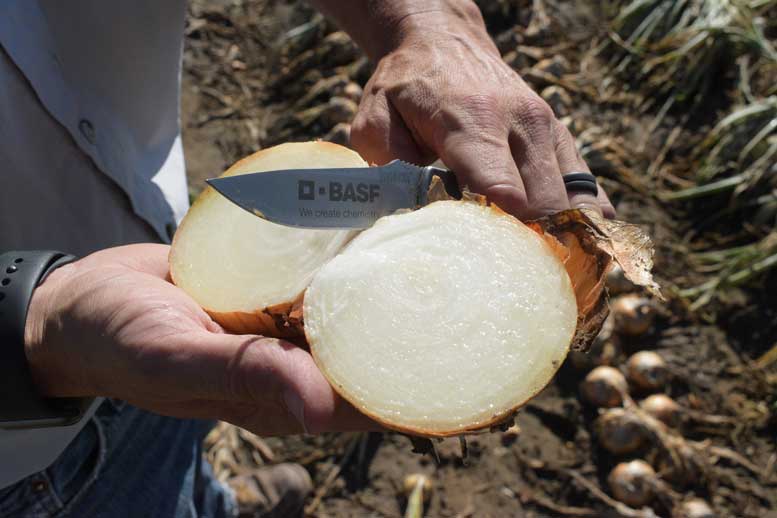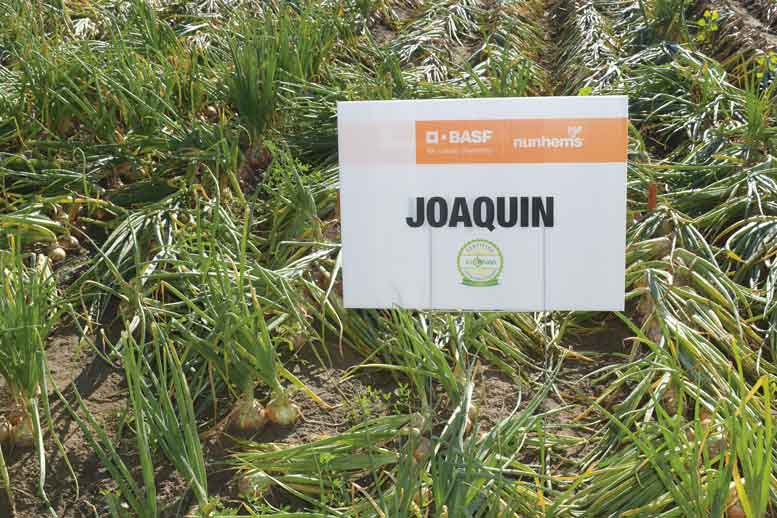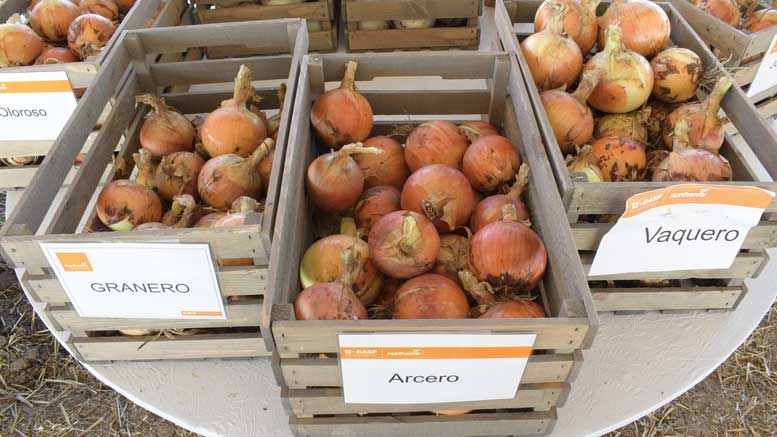|
Click to listen to this article
|
Story and photos by Dave Alexander, Publisher
After BASF’s recent announcement that its Nunhems S7210 Sunions variety will be widely available for growers in the Pacific Northwest and Treasure Valley, the Nunhems Onion Showcase on Aug. 28 in Parma, Idaho, was the perfect opportunity to get some more details about this tearless variety.
We spoke with Kaitlyn O’Neal, BASF Nunhems onion regional crop lead for the Americas, during the Showcase about Sunions and BASF’s new Eco Onion sustainability initiative.

Where were Sunions bred?
These were bred in the U.S. They’ve been a long time in development – about 30 years. Our previous breeder, Rick Watson, was the main lead on them, bringing them to commercialization. The variety name is S7210, but we call them Sunions under our brand name.
We know Sunions will be readily available for next growing season, but how will grower/shippers and grocery stores market them? Are they a premium product, a sweet or what?
I see them as a really nice domestic sweet in the winter marketing season. They will be a direct competition to an imported sweet in the winter that happens to be tearless.
Will grocery stores get a premium price?
We’ve seen them with some premium and some without. But I really believe there is a niche that people are interested in buying these with a premium price. The tearlessness really does drive consumer interest in these onions. We’ve had multiple consumer surveys that say they have interest because of the tearlessness. Then when they try them, they love them because they are a really nice sweet variety.
What did you find in the consumer surveys?
Tearlessness was a really important factor both from a first-time purchase and a repeat purchase. About 27 percent of people who purchased S7210 multiple times said that tearlessness is a factor for repeat purchases. Sweet onion taste and flavor is also an important purchase driver, at 25 percent.
Will the grower have to pay a premium price for the seed?
He will. We expect that this is a premium product in the marketplace for consumers. We have to capture that value, as well, to continue bringing new innovations like S7210, so it will have a bit of a premium price.
S7210 is a long-day, right? When does it mature?
It’s an early-maturing long-day yellow. It matures around 100 days, which is very similar to our Montero variety.

How does it store?
They store very well. We can store into March – April without a problem. And they just get sweeter the longer they’re stored.
Let’s talk about seed availability.
We have really nice seed supply. When we first introduced this variety, we were building up our seed supply and we were just working with a couple growers to understand the market. Now, going into 2024, we know that there is demand from consumers and we’re opening up this variety to any grower that’s interested in purchasing it. We’re excited to see this variety go either into the Sunions brand like we’ve had in the past or to be put into a grower’s or packer’s own brand. We’re seeing some pretty interesting brand names coming out. There might be one called Smiley’s coming out this winter.
Smiley’s plays off the tearless trait a little, but any other brand names that focus on that?
In Australia, they have a brand name called Happy Chop. There are lots of interesting names that come out of it because of the tearlessness.
Is this variety for the Pacific Northwest?
It does well in Idaho, Washington and into Oregon. It doesn’t do as well under overhead irrigation, so it really prefers drip irrigation due to the top strength.
Let’s talk about BASF Nunhems’ new Eco Onion sustainability initiative for a minute. Your tagline is “a truly sustainable onion.” What is this program?
We discovered through multiple years of research that some of our varieties could be grown with less. So, with less water, less fertilizer and following an IPM protocol, we can still get the same yield as the grower standard variety.
What varieties are we talking about?
Some of the old favorites like Joaquin and Vaquero. We’ve shown you can use 10 percent less water, 30 percent less fertilizer and, if you use our IPM protocol, you can still grow the same amount of Joaquin as you have been.
What is the IPM protocol?
If growers chose to get certified and show they are following the right protocols, the Integrated Pest Management protocol we offer can be IPM-certified. For example, Walmart has required all produce to be IPM-certified by 2025. So this program would count for that certification.
Not only can growers become more sustainable and get certified, it doesn’t hurt to be able to save on input costs and get the same yield.
Find out more about Sunions and Eco Onion at www.nunhemsusa.com.

